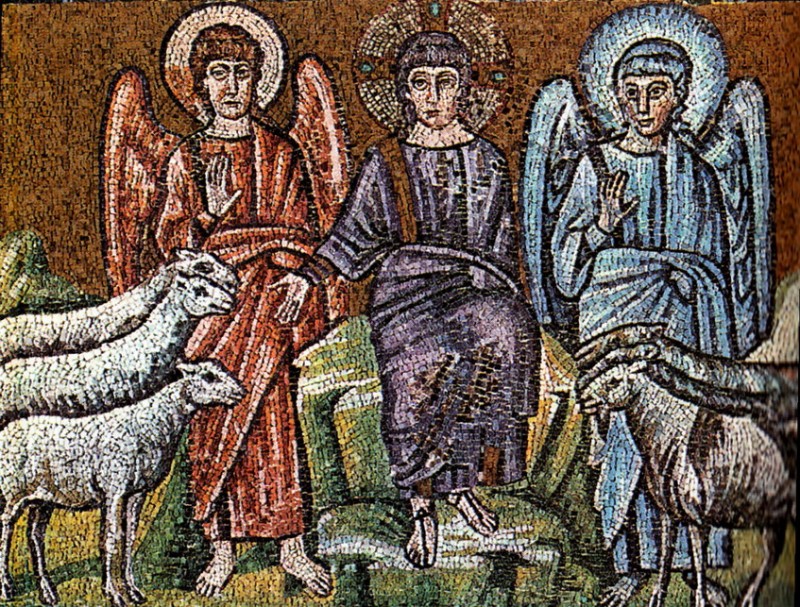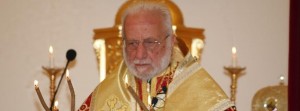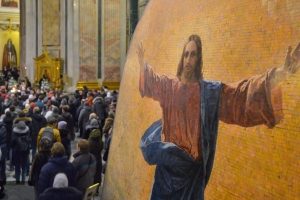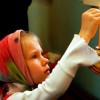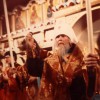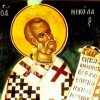When the Son of man shall come in His glory, and all the holy angels with Him, then shall He sit upon the throne of His glory: and before Him shall be gathered all nations, and He shall separate them one from another, as a shepherd divideth his sheep from the goats. And He shall set the sheep on His right hand, but the goats on the left. Then shall the King say unto them on His right hand, Come, ye blessed of My Father, inherit the kingdom prepared for you from the foundation of the world. For I was a-hungered, and ye gave Me meat: I was thirsty, and ye gave Me drink: I was a stranger, and ye took Me in: naked, and ye clothed Me: I was sick, and ye visited Me: I was in prison, and ye came unto Me. Then shall the righteous answer Him, saying, Lord, when saw we Thee a-hungered, and fed Thee? or thirsty, and gave Thee drink? When saw we Thee a stranger, and took Thee in? or naked, and clothed Thee? Or when saw we Thee sick, or in prison, and came unto Thee? And the King shall answer and say unto them, Verily I say unto you, inasmuch as ye have done it unto one of the least of these My brethren, ye have done it unto Me. Then shall He say also unto them on the left hand, Depart from Me, ye cursed, into everlasting fire, prepared for the devil and his angels. For I was a-hungered, and ye gave Me no meat: I was thirsty, and ye gave Me no drink. I was a stranger, and ye took Me not in: naked, and ye clothed Me not: sick, and in prison, and ye visited Me not. Then shall they also answer Him, saying, Lord when saw we Thee a-hungered, or athirst, or a stranger, or sick, or in prison, and did not minister unto Thee? Then shall He answer them, saying, Verily I say unto you, inasmuch as ye did it not to one of the least of these, ye did it not to Me. And these shall go away into everlasting punishment: but the righteous into life eternal (Matthew 25:31-46).
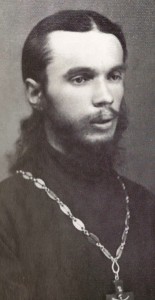 As we gradually approach Great Lent, the Church dedicates tomorrow’s Sunday to a remembrance of the Dread Judgment of Christ, about which the Lord Jesus Christ Himself spoke in detail to His disciples in the relevant discourse that, God willing, we will hear tomorrow at the Liturgy in the Gospel reading.
As we gradually approach Great Lent, the Church dedicates tomorrow’s Sunday to a remembrance of the Dread Judgment of Christ, about which the Lord Jesus Christ Himself spoke in detail to His disciples in the relevant discourse that, God willing, we will hear tomorrow at the Liturgy in the Gospel reading.
The prayerful preparation for the fast began two weeks ago. The Church offered us the Gospel of the Publican and the Pharisee, showing us how we should pray and should not pray to God. For the fast is the time of prayer par excellence. Then came the next Sunday, of the Prodigal Son, when the Church – calming and encouraging man inhibited by the consciousness of his own sinfulness – indicated this parable, in which we see how merciful the Lord is when His prodigal son comes to Him in repentance. As it says in the Church’s prayers, He accepts him with love, without berating him, without reproaching him for what he had done, but with love and forgiveness only.
But there are souls that are hard as rock, which do not soften and are not tempered by these poignant examples. It is for these that tomorrow the Church offers the Savior’s discourse on the Dread Judgment, in order to make even the hardness of sin-loving man to shudder and tremble.
Today was the so-called “Ancestral Saturday,” on which the Church prayed for the repose of all Orthodox Christians throughout the entire universe who have reposed in all ages. This is only natural: turning our attention to the Dread Judgment of Christ, the Church reminds us of those who will stand before the Dread Judgment, as we will, but who have already departed from this life and its boundaries, abiding already in the mysterious and otherworldly afterlife. When one completes one’s earthly path, the moment of death puts an end to, and terminates, his time for personal repentance. But the Church tells us that if, for example, someone’s soul departed in sins, without bearing repentance, and if this heavy and sinful burden torments it beyond the grave, then it suffers – but not hopelessly, for its fate is far from hopeless. One can no longer pray for oneself there – one’s time of repentance has passed – but the Church does not deprive one of its maternal care and concern, praying for the soul, that the Lord might forgive its sins and grant it the portion of the blessed in eternity.
We know from the Lives of Saints many examples of how the prayer of the Church – the prayer of neighbors and relatives offered in the depths of the Church – has shown doubtless and great help to the souls of men who have departed to that afterlife in poor condition, but without hopelessness. Thus the Church calls upon us to pray for those who will stand before the Dread Judgment and who can no longer change their own portion. Thus does the Church call upon us to offer our prayers for them, for such prayer is acceptable to God.
And what of ourselves? Tomorrow is the Sunday of the Dread Judgment. How often do we ourselves remember this last accounting? When a student or pupil needs to take a difficult exam, he labors over it, worrying and fearful, trying to prepare himself as best he can. And here there will be a terrible and final exam, after which there will be no retesting in eternity. However, astonishing are ease and oblivion with which man treats this dread and final moment, before this opening into eternity, time and again giving almost no thought to it. It is not superfluous here to recall the words of an ascetic: “Trembling overcomes me at the thought of the final judgment; but I think I will be especially surprised by three conditions: First, that I will not see at the right of the Righteous Judge many that I thought I would see there; I will be even more surprised when I see many on His left that I never thought I would see there; but I will be most surprised if I myself turn out to be on the right.” Thus spoke a humble ascetic who saw his sins, but did not notice his virtues, for the Lord leads His faithful servants so wisely that they see other’s virtues, but not their own. But they do see their own sins, which they feel torturously and painfully.
The Holy Hierarch Philaret, Metropolitan of Moscow, said in one of his inspiring sermons: “Remember, man, that the Lord reveals to you the picture of His Last Judgment beforehand, that while it is not yet too late, you might run from the left side to the right.” If your conscience is sensitive, if it accuses you of sins, then surely you cannot but fear this judgment, for you are threatened with the portion on the left. But the Lord does reveal to us what will be, so that you might come around and, while it is not too late – while your earthly life has not yet been cut short, while you are still its master in this regard, for it depends wholly on your freedom how you define yourself in relation to eternity – you might use this same path of freedom to serve God and move from the left to the right. It is not yet too late! For the Church, indicating this, tells us: It is not yet too late! It is already too late for those of our brethren who have completed this earthly life, but for us it is still the time of repentance and correction. “This is the time for doing,” as St. Gregory the Theologian says. And may it not pass by unfruitful for us, but may the Lord help us to bring good fruit for the Heavenly Kingdom! Amen.












